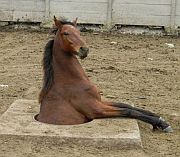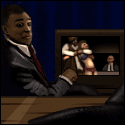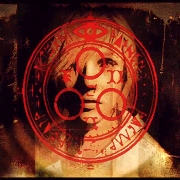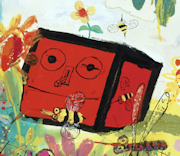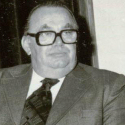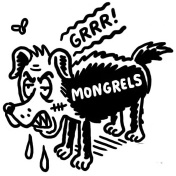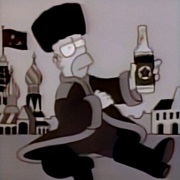|
vyelkin posted:That's a pretty broad field! Can you narrow it down at all? Are there certain countries, cities, years, topics, that you find particularly interesting? Let's say 1830s to 1860s Great Britain just for the sake of narrowing things down. Or British industrialization in general.
|
|
|
|

|
| # ? May 13, 2024 21:59 |
|
Progress and Poverty: An Economic and Social History of Britain 1700-1850 by Daunton is one standard textbook if you have library access.
|
|
|
|
|
Good books on negotiating the reunification of Germany?
|
|
|
|
I have a few unrelated requests, one of which has been an interest for a while and another sprang up as a result of 1491. First, are there any (good) books on Roman technology circa 450 CE? Also, what would you recommend for learning more about the Haudenosaunee?
|
|
|
|
sbaldrick posted:In a few years get ready for a couple of really great books on West African history due to the sad fact the libraries of Timbuktu had to be evacuated out of the country or be destroyed. Luckily they got some 28,000 books out which have been moved to Oxford for safe keeping and research. Last year's Christmas Special Issue of The Economist included a report about it. The article had one of the best opening lines I've ever seen. quote:The evacuations began before dawn.
|
|
|
|
Any recommendations for books on Tudor history or War of the Roses? I have a ton in my Audible wishlist and have a bunch of credits, so preferably something on there but not required. Brodeurs Nanny posted:I would love a good read on Polish/Lithuanian history, or even a general Eastern European modern history. Preferably from medieval forward. I did not personally read this, but my boyfriend recently read Poland: The First Thousand Years by Patrice M. Dabrowski and, well, it says it all in the title. The vast majority of the book is well before this past century and he said it was a very concise and detailed account of Poland's history going pretty far back. He's very much into the history of Poland and liked it quite a lot so I trust his judgement here with this recommendation despite not having read it myself just yet. Fray posted:I want to learn more about Victorian Europe. Not so much the geopolitics side of things, which I already have a background of, but more the everyday culture, economics, art, and so forth. Any recommendations? Although this is a very specific aspect of the Victorian Era, The Table-Rappers by Ronald Pearsall is about the obsession with the occult during this particular time. Lots of great information about the culture at the time. Trojan.exe fucked around with this message at 07:51 on Aug 9, 2016 |
|
|
|
I'm hoping someone will recognise this book and remember the title: it was a transcript of the conversations between Kennedy and his advisors during either the Bay of Pigs invasion or the Cuban Missile Crisis. Now that I think about it the latter sounds more likely. I picked it up for an essay and I'd love to go back and read it properly.
|
|
|
|
left_unattended posted:I'm hoping someone will recognise this book and remember the title: it was a transcript of the conversations between Kennedy and his advisors during either the Bay of Pigs invasion or the Cuban Missile Crisis. Now that I think about it the latter sounds more likely. I picked it up for an essay and I'd love to go back and read it properly. I know that Tim Weiner's A Legacy of Ashes has a transcript from the Oval Office during the missile crisis that showed how John McCone was the first person to push for a trade of the Cuban missiles with American ICBMs stationed in Turkey.
|
|
|
|
ExecuDork posted:There's already a book about that evacuation, The Bad-rear end Librarians of Timbuktu. That looks like an awesome book, but I meant more that people are going to read what's in those books.
|
|
|
|
MeatwadIsGod posted:I know that Tim Weiner's A Legacy of Ashes has a transcript from the Oval Office during the missile crisis that showed how John McCone was the first person to push for a trade of the Cuban missiles with American ICBMs stationed in Turkey. This was a whole book transcript, and it wasn't about the CIA. That one does sound awesome though.
|
|
|
|
What's a good primer on Mexican history? I already have books on the indigenous folks and cortez and all that jazz, so I'm looking for something with a more modern scope. I took a course on Mexican history a few years back, but we only covered the big curriculum-worthy events and talked about a handful of people. There wasn't much room to talk about Mexican culture, politics, beliefs, and so on, which is what I'd like to read about.
|
|
|
|
So I'm going to Tulsa, New York and Boston. Any good non fiction suggestions?
|
|
|
|
This is probably a long shot, but anyone know any good books on/ that include Siberian shamanism? Failing that, Mongolian or Central Asian?the_homemaster posted:So I'm going to Tulsa, New York and Boston. It's already been recommended to death but I just finished 1491 and found it as interesting and informative as everyone else seems to.
|
|
|
|
the_homemaster posted:So I'm going to Tulsa, New York and Boston. Read Gotham, which is a history of the early part of New York City.
|
|
|
|
sbaldrick posted:Read Gotham, which is a history of the early part of New York City. Seconded. That book was fantastic, though the never-appearance of the promised Volume 2 makes me sad.
|
|
|
|
the_homemaster posted:Tulsa The Worst Hard Time is good.
|
|
|
|
the_homemaster posted:Tulsa Riot and Remembrance: the Tulsa Race War and Its Legacy. Sad that the 1921 race riot is probably the most memorable thing that ever happened in Tulsa, and no one wants to remember it.
|
|
|
|
Avocados posted:What's a good primer on Mexican history? I already have books on the indigenous folks and cortez and all that jazz, so I'm looking for something with a more modern scope. I took a course on Mexican history a few years back, but we only covered the big curriculum-worthy events and talked about a handful of people. I suggest The Mexico Reader: History, Culture, Politics, it's a pretty good selection of (English language) stuff on Mexico.
|
|
|
|
Cheers everyone
|
|
|
|
smr posted:Seconded. That book was fantastic, though the never-appearance of the promised Volume 2 makes me sad. It could still be being worked on.
|
|
|
|
Koramei posted:This is probably a long shot, but anyone know any good books on/ that include Siberian shamanism? Failing that, Mongolian or Central Asian? It really doesn't have anything to do with shamanism, But Arsenyev's Dersu Uzala is a memoir published in 1923 about the Siberian hunter and trapper who was his guide on a number of surveying expeditions in the early 20th century. It does touch on his faith and worldview a bit, but that's about as far as it goes. It's still a great read, and I warmly recommend it. It was also filmed by Kurosawa, but I haven't seen that one.
|
|
|
|
Koramei posted:This is probably a long shot, but anyone know any good books on/ that include Siberian shamanism? Failing that, Mongolian or Central Asian? This probably, although idk what anthropologists nowadays think about it: https://www.amazon.com/Shamanism-Archaic-Techniques-Ecstasy-Bollingen/dp/0691119422
|
|
|
|
Not exactly a History Book, but I have just finished "A Short Story of Nearly Everything" by Bill Bryson and enjoyed it immensely. Anything similar that goes over the last decade or two?
|
|
|
|
Avocados posted:What's a good primer on Mexican history? I already have books on the indigenous folks and cortez and all that jazz, so I'm looking for something with a more modern scope. I took a course on Mexican history a few years back, but we only covered the big curriculum-worthy events and talked about a handful of people. I've only read a few chapters but The Life and Times of Mexico, by Earl Shorris could be right up this alley. It does cover ancient history as well as modern, so there may be some wasted pages for you.
|
|
|
|
Haven't checked in on this thread in a while but just read Perry Anderson's American Foreign Policy and Its Thinkers which was a fantastic overview of the currents in the history of America foreign policy thinking. About to finish The Devil and Mr. Casement, a quick and lively read on Roger Casement's research into abuses perpetrated by the Peruvian Amazon Company on behalf of the British Foreign Office. He would be executed a couple years later for his role in the Easter Rising of 1916.
|
|
|
|
Has anybody read John Merriman's Massacre: The Life and Death of the Paris Commune? I have a copy out from the library, started on my commute this morning. Also, can someone give me a recommendation for a book on Kerala, India's history of FULL COMMUNISM NOW?
|
|
|
|
Are there any good books out there that give a general history of the black death?
|
|
|
|
Minenfeld! posted:Are there any good books out there that give a general history of the black death? I enjoyed https://www.amazon.com/Great-Mortal...the+black+death quite a bit. Readable, fast, up to date.
|
|
|
|
Minenfeld! posted:Are there any good books out there that give a general history of the black death? An open access medieval journal, the Medieval Globe, had a recent theme issue about the black death: http://scholarworks.wmich.edu/tmg/vol1/iss1/ It has some cool things like an article about bioarcheological evidence from 14th century London, one about how historians can help immunologists better understand spreading of diseases in current times and vice versa, and a look at the devastating effects of the plague on Egypts irrigation system due to depopulation. I can imagine it might be a bit too scholarly for most people though.
|
|
|
smr posted:I enjoyed https://www.amazon.com/Great-Mortal...the+black+death quite a bit. Readable, fast, up to date. Seconding this, it's probably the best popular account out there.
|
|
|
|
|
I have four works to strongly recommend for any appreciator of military history. The first is John Keegan's The Face of Battle. This landmark work studies the battles of Agincourt, Waterloo and the Somme, to try to understand battle from the perspective of those who fought in them. It attempts to understand warfare on the level of its practical mechanics, how closely troops were spaced, how different types of weapons affected troops, how bodies of troops interacted with one another. John Keegan was really the first military historian I know of to try to get down to what you might call the physics of battle. In doing so, it describes battle from the soldier's point of view, with a deep sympathy for all people affected by war. Absolutely a tremendous work. Second, Alistair Horne's To Lose A Battle. This is the authoritative book on the Battle of France in 1940. It starts long before 1940, beginning in 1919 with the Treaty of Versailles and France victorious over a broken Germany. It traces how the French Army stagnated and declined from the superb weapon of 1918 into the rusty implement of 1940, and traces how the German Army recovered from its collapse in the interwar period and laid the foundations for its future military success. When war finally comes, Horne covers the conflict from the quarrels in high command all the way down to the experiences of private soldiers on a day by day, sometimes hour by hour account of the Fall of France. Horne does not just address the how's but digs into the why's of French failure and German success. Anyone who wishes to understand that Fall, perhaps the most decisive of German victories and crushing of Allied defeats in the Second World War, would do well to read this book. Finally, my last recommendations are a pair. Dreadnought and Castles of Steel, both by Robert K. Massie. The first book covers the political and diplomatic situations in Britain and Germany in the years before the outbreak of the First World War. Dreadnought focuses on the naval arms race between the Royal Navy and the German Navy, the technological developments that led to the all-big gun dreadnought battleship and its cousin the battlecruiser, and the political developments that brought Britain and Germany, once close allies against the French, into strategic rivalry with each other. Dreadnought ends with the British declaration of war on Germany in August of 1914. This is where Castles of Steel picks up, with an in-depth account of the naval theatre of the First World War. Massie covers all the major engagements, with a multi-chapter discussion of the climactic (some would say anti-climactic) Battle of Jutland and its outcome and strategic effects. Castles of Steel also covers the German submarine campaign, Allied efforts to counter it, and its effect on American diplomacy and the American entrance into the war. Both of these books are highly readable and worthwhile individually, but they work best when read as a pair.
|
|
|
|
EricD posted:I have four works to strongly recommend for any appreciator of military history. Are... are you me? Keegan was a revelation to me in college, I was introduced to him and Tuchman at about the same time and devoured their bibliographies in a hurry. Horne might be my favorite historian going; I read his Seven Ages of Paris on a Hawaiian vacation and it was just a lovely book to have on that jaunt. He writes _so_ _well_. Massie is always a commitment but over the last two years I've read the two you've listed, plus his biographies of The Greats, Peter and Catherine. I found the naval books to be better reads, I struggled with the overwhelming weight of detail the latter shoves at the reader across a variety of topics, whereas Castles and Dreadnaught have at least the Navy thing for him to hang a specific hook onto. I'm curious to see how Simon Sebag Montefiore's new book on the entire Romanov dynasty compares to the collected Massie books on the topic, I find Montefiore to be the superior author in general. But yeah, all of the authors you mentioned, regardless of the quibbles more recent research and attitudes can make some of their works when viewed from today, are still totally valid works and hold up really well. And, at least in Horne and Keegan's case, are models of how academic historians should write for a non-academic audience, just wonderfully written books.
|
|
|
|
smr posted:Are... are you me? I'm a massive nerd for military history in general, and the naval theatres of the World Wars is one particular interest. I had read many books on the naval theatre of the Second World War (Shattered Sword by Johnathan Parshall is by far the best on the Battle of Midway), but I discovered Massie's accounts of the dreadnought arms race and the naval theatre last year and found them to be extremely good works. I would agree that they are commitments as you say, they're both tomes, but there is a ton of good information in there for the scholar and they are both readable for the layman as well. I picked up Keegan and Horne just this month, finding both of those books and Dave Grossman's On Killing (which I haven't read yet) at a used book store for the excellent combined price of $30.00. I devoured The Face of Battle, as I am a HEMA practitioner and an archaeologist by education and that sort of stuff about the practical mechanics and physics of battle is deeply interesting to me. I am about a third of the way into To Lose A Battle, and I thoroughly agree on the quality of Horne's writing. There are many academics who are brilliantly insightful and educated on their topics but cannot write worth a drat, and there are many persuasive and vivid writers who know nothing. Alistair Horne manages to combine excellent writing and thorough research and understanding.
|
|
|
|
EricD posted:I'm a massive nerd for military history in general, and the naval theatres of the World Wars is one particular interest. I had read many books on the naval theatre of the Second World War (Shattered Sword by Johnathan Parshall is by far the best on the Battle of Midway), but I discovered Massie's accounts of the dreadnought arms race and the naval theatre last year and found them to be extremely good works. I would agree that they are commitments as you say, they're both tomes, but there is a ton of good information in there for the scholar and they are both readable for the layman as well. Shattered Sword was great; have you read The Last Stand of the Tin Can Sailors? I found that to be in the same vein and an outstanding read on a pretty obscure subset of what most people just assume was an overwhelming American victory.
|
|
|
|
Got through Wilson's Heart of Europe, and I loved it. I was sceptical of its organization (it's not chronological, instead it's separated into sections covering specific aspects of the HRE), but it turned out fine. There's even a 50-page chronological overview of the major events in one of the appendixes. There were some parts that I felt were gratuitously long and the language overwrought, but in all I found it to be a far easier read than Europe's Tragedy, since the people and locations are less numerous. Also read Crowley's Conquerors: How Portugal Forged the First Global Empire and it was pretty fun. Any recommendations for a biography of Alfred the Great?
|
|
|
|
Just picked up John Tanner's The Falcon and was wondering if you guys had any other good recommendations for Indian captivity narratives or other autobiographies of similar figures?
|
|
|
|
kalthir posted:Got through Wilson's Heart of Europe, and I loved it. I was sceptical of its organization (it's not chronological, instead it's separated into sections covering specific aspects of the HRE), but it turned out fine. There's even a 50-page chronological overview of the major events in one of the appendixes. There were some parts that I felt were gratuitously long and the language overwrought, but in all I found it to be a far easier read than Europe's Tragedy, since the people and locations are less numerous. I really appreciated Wilson's organization in Heart of Europe because if he went purely chronologically (the individual chapters are themselves chronological so in a sense he actually did) then there would be only about half of a page for each year of the Holy Roman Empire's existence. There's no way that could be a good way to discuss something that complex. Usually when I'm reading a lengthy history book the initial part holds my attention, but I find that most books have a middle 'swamp' that I have to just power on through and I don't really retain much of what i read, I had this feeling with Heart of Europe, but not as strongly as with other books and I think the book's way of organizing information was part of that. I completely agree about the language and the some sections being way too long though. Sometimes I would read about twenty pages and have to stop and say to myself 'what the gently caress did I just read?' because I couldn't retain the information.
|
|
|
|
Anyone know any good books that give a good overview of history related to the current situations in the Middle East? I've been meaning to become more literate on this for some time now.
|
|
|
|
Lawrence Wright just released a book about ISIS called The Terror Years, but I haven't read it. I just finished The Looming Tower which covers the history of Al-Qaeda and that I can vouch for. It's excellent.
|
|
|
|

|
| # ? May 13, 2024 21:59 |
|
Is Gibbon's Decline and Fall... worth reading or is it a more a piece of history itself? Has it been eclipsed by modern scholarship?
|
|
|



